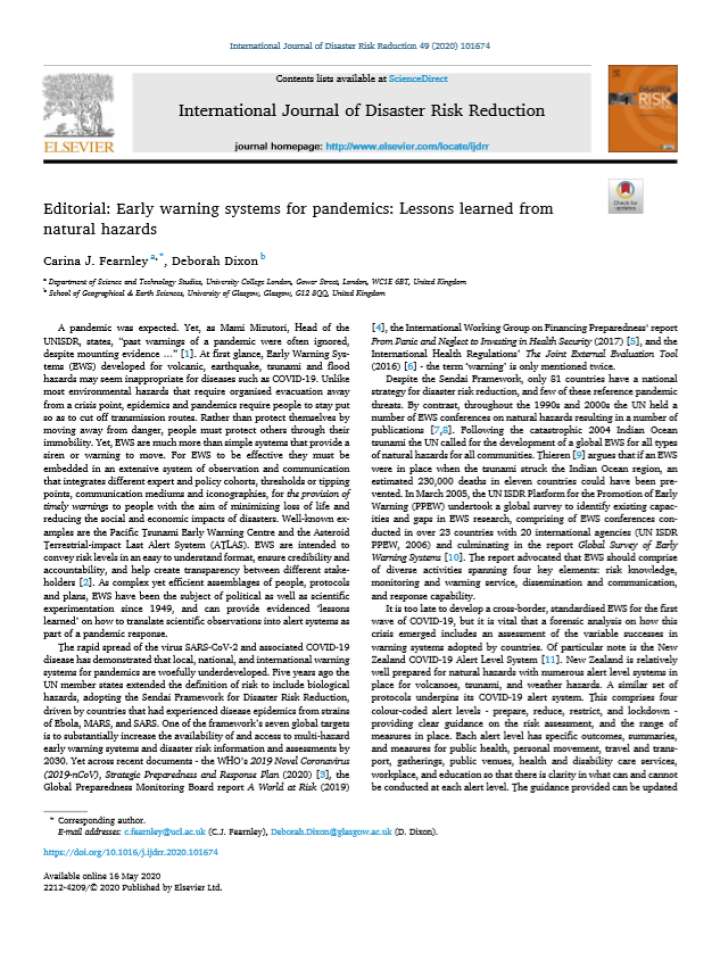Editorial: Early warning systems for pandemics: Lessons learned from natural hazards
As more political administrations look to Early Warning Systems (EWS) to help mitigate future waves of coronavirus disease 2019 (COVID-19), evidence-based considerations from the study of EWS and environmental hazards can lay the ground for discussion. According to this editorial, the key findings to be carried forward are as follows:
- Translation and multi-way communication are required to ensure that all involved in designing and assigning alerts understand what information is credible and relevant.
- Whilst alert level systems are used globally as a visual and text-based shorthand system to convey concise and clear information to a wide range of people, scientific uncertainties can make alert levels complicated to use.
- The standardisation of alert levels and early warning systems is vital to convey information to a wide range of stakeholders.
Explore further
